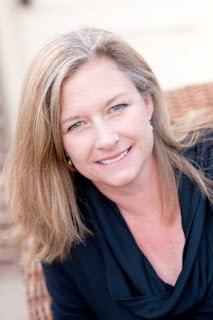Award winning author, Karen Campbell Prough, writes historical fiction and a broad range of short stories. She knows her life-long desire to write comes from God. The love of books and the heartfelt urge to be a storyteller has been with her since childhood. Seven of her short stories were published in a variety of magazines. She has won awards at the 2014 BRMCWC and the 2015 FCWC. Her first book, The Girl Called Ella Dessa, came out April 2015.
Welcome to my blog, Karen! Please tell us about your debut novel, The Girl Called Ella Dessa.
The Girl Called Ella Dessa, is the beginning of a young girl’s journey through grief, the reality of awful scars, and young love. The story takes place in the rolling mountains above Dahlonega, Georgia. It was a time when gold mining in the surrounding hills had put its mark on the lives of many local men. Ella Dessa loses everything close to her. But a widow, with five children, is happy to take her in and give her a home. Through the friendship of a teen named Samuel, Ella Dessa realizes the hint of love does live in her bleak world. But she does not desire Samuel’s loyal attention. It is his older brother who captures Ella Dessa’s thoughts.
Is there anything about yourself you see coming through your main character?
Her stubbornness? J Ella Dessa is quite independent, and she knows when to accept her role in life and try to accomplish the things that matter.
What compelled you to write this story?
Imagination is a driving force in me. I never outline or know where my stories are going when I start writing. I sometimes feel as if the characters compel me to put their story on paper—just so glimpses into their past will be saved and shared. Life is never easy, and life in the hills and mountains during 1836 was not a joyous vacation. And I love to vacation in those mountains!
You cover some difficult issues very carefully in your book. What prompted you to deal with them in your story?
As I mentioned before, I don’t outline or plan what I’ll write. It just happens along the way, as the story grows. But I believe people don’t always know what is behind the misbehavior of all children. This world is not ideal, and no story written true to life is perfect. Children suffer things they shouldn’t have to in this world.
In the past, I worked with children, as a volunteer, through Guardian Ad Litem. I have seen the way teens and little kids deal with issues thrown at them by the adults in their lives—the ones who are suppose to love and protect them. I started writing this book and realized the period in history doesn’t matter. Bad things happened in the past. I had created a mean, unseen character who left his children and wife for the love of gold. Hurt is the same in 1836 as it is in our day and time. Children act out because of the pain and are sometimes misunderstood. I wanted to present some indications of behavior problems that might leave clues, which should raise awareness.
Will there be a sequel? If so, would you like to tell us more about it?
There is a second book in the editing process right now. We will visit the mountains above Dahlonega, Georgia and Ella Dessa’s life once more! And love is a key factor in book two, but that’s not to say there won’t be trials and pain along the way. Have to keep an eye out for a minor character. He returns and causes major problems for Ella Dessa. Anyone want to guess who the man might be?
Have you seen any good movies lately, which you would recommend to other writers to watch for the quality of the story?
I wish I could say that I have watched a good movie, but the truth is … I rarely watch movies anymore. I find myself too busy with life and writing.
Thank you for joining me this week, Karen, and sharing about your writing journey.
Easily enter the drawing for Karen's excellent novel, A Girl Called Ella Dessa,
through the Rafflecopter giveaway below by midnight August 6th. (The contest
will start at midnight tonight.)
Please Tweet this: Karen Campbell Prough shows her love of the
mountains in Georgia in A Girl Called Ella Dessa. #historicalfiction
Easily enter the drawing for Karen's excellent novel, A Girl Called Ella Dessa,
through the Rafflecopter giveaway below by midnight August 6th. (The contest
will start at midnight tonight.)
Please Tweet this: Karen Campbell Prough shows her love of the
mountains in Georgia in A Girl Called Ella Dessa. #historicalfiction
a Rafflecopter giveaway










